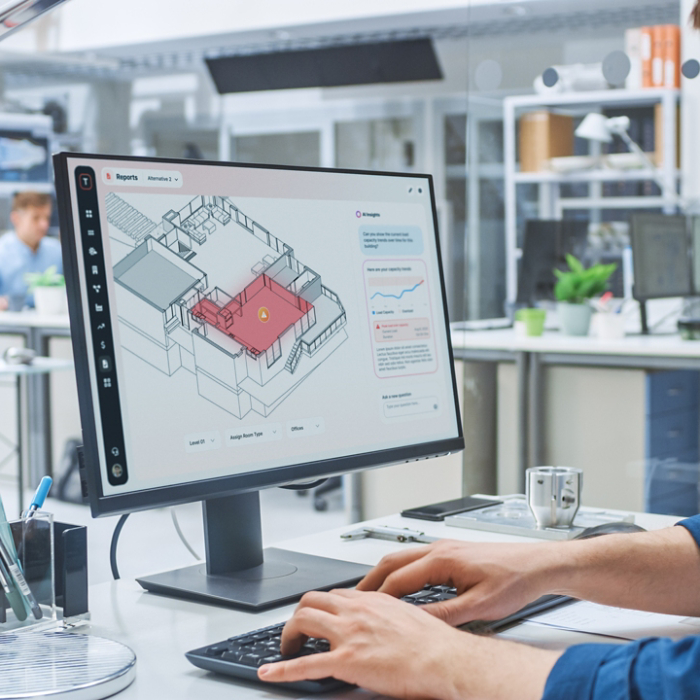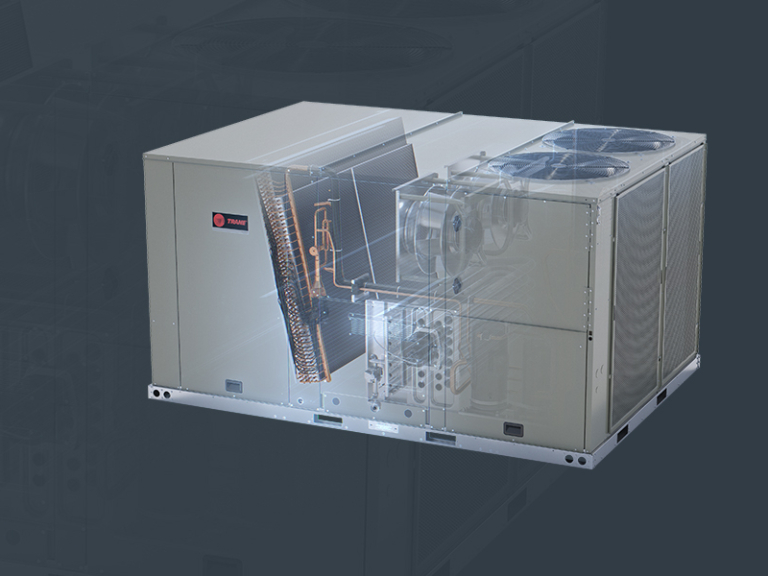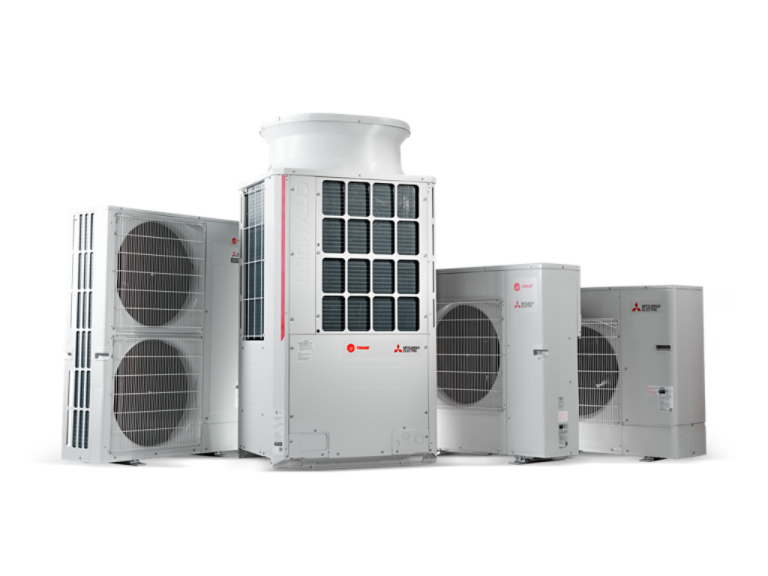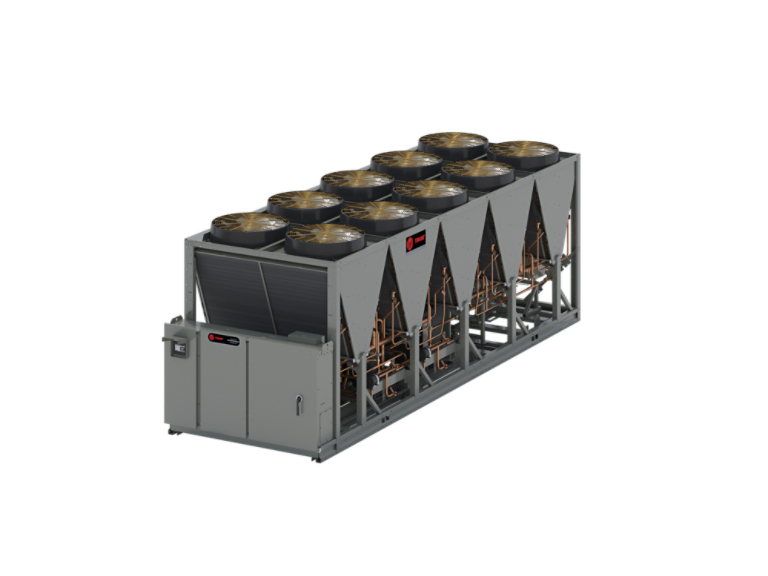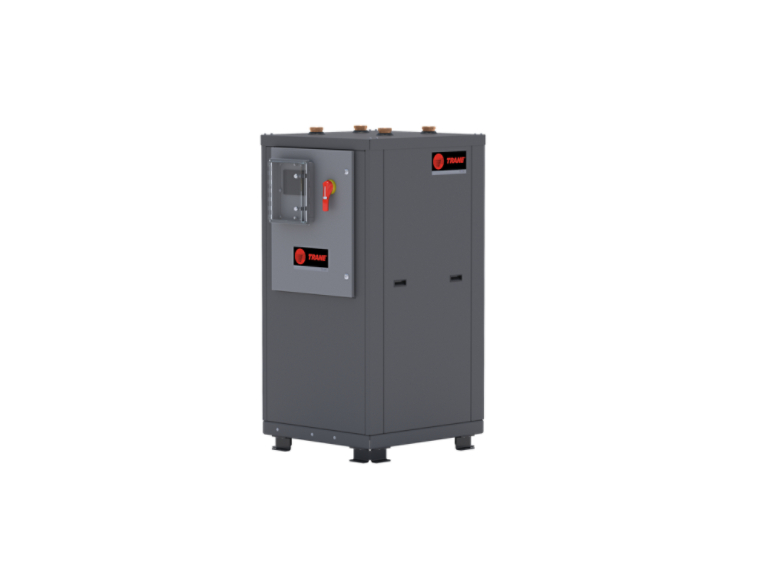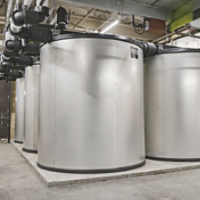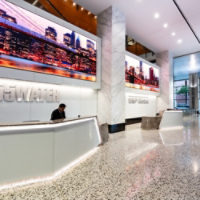Electrification of heat refers to the process of replacing heating technologies that use direct fossil fuels (e.g. oil and natural gas) with technologies that use electricity as a source of energy.
Overview
Future ready. All weather comfort.
Experience sustainable, reliable comfort for every season. Our electrification solutions power your future heating needs, today.
-
Reduce Costs
Help lower total cost of ownership with our robust portfolio of end-to-end electrification solutions that reduce upfront and downstream costs.
-
Simplify integration
Rely on a Trane expert near you to create a customized plan that can help meet local building requirements and provide long-term system reliability.
-
Help Improve Sustainability
Replace direct fossil fuel use with electricity, reducing emissions as the grid transitions to clean energy sources.
Key Benefits
Re-imagine efficient, low-carbon HVAC.
Discover all-electric and hybrid heat pump solutions scalable for commercial and industrial buildings. Help improve energy use and support decarbonization goals with Trane’s system expertise.
-
Energy Efficiency
Boost efficiency by 3 times more than other forms of electric heat.
-
Reliable Performance
Deliver reliable performance, even in cold climates.
-
Reduce Environmental Impact
Help support ESG goals while complying with evolving regulations and policies.
Make building electrification real.
Your goal is to decarbonize. Our job is to make that easier—a lot easier. When it’s time to “go electric” Trane can help you make informed choices for future ready, all- weather comfort.
-
Navigate a path to electrification without sacrificing your bottom line with financial incentives and solutions that help improve efficiency.
FAQs
Your questions about electrification, answered.
When comparing electric vs gas HVAC, electrification is becoming a key way to decarbonize by reducing fossil fuels as the nation’s power grid is transitioning to carbon-free energy sources, such as solar and wind.
Much like the trend toward vehicles that are powered by electric batteries, buildings are moving towards electrified heating.
Buildings account for 38% of global energy-related CO2 emissions and HVAC accounts for 40% of building energy use. (Source: Decarbonizing heat in buildings. Q3 2021. GuidehouseInsights.)
Yes, power grids are decarbonizing, moving away from high-emission fuels such as coal and oil, toward carbon-free energy sources including solar, wind, hydropower and other renewables. As electricity becomes less emissions-intensive, electrified heating solutions can help make a significant carbon-reduction difference.
That’s why many state and local regulations are mandating the transition to electric HVAC, utilities are incentivizing early adopters and companies are “going electric” to achieve net-zero emissions ESG sustainability goals.
Nationally, the electric power sector has already reduced emissions mainly from efficiency efforts. In contrast, there has been no real reduction in carbon emissions from direct fossil fuel use in buildings in decades. Cooling (air conditioning) is already electric. The majority of emissions that come directly from buildings are traceable to the use of fossil fuels for heating systems.
As more renewables are added to the grid, emissions in the electric power section will continue to go down. This means emissions in building will go down too ONLY if they are using electricity to power their building.
Customer Stories
See how we’ve helped customers like you.
-

Heat Recovery at Science Museum of Minnesota: Reducing Costs and Carbon Footprint
The Science Museum of Minnesota embraced a holistic approach to building comfort with Trane's heat recovery solutions. Discover how the museum's heat recovery retrofit captured waste heat, significantly lowering heating bills by 75% and saving nearly $300,000 annually. -
-
-
Resources & Insights
Insights from our electrification of heat experts.
Connect with an expert.
Still not sure which solution is right for you? Connect with a Trane expert.
Prefer to chat with someone at your local Trane office?


